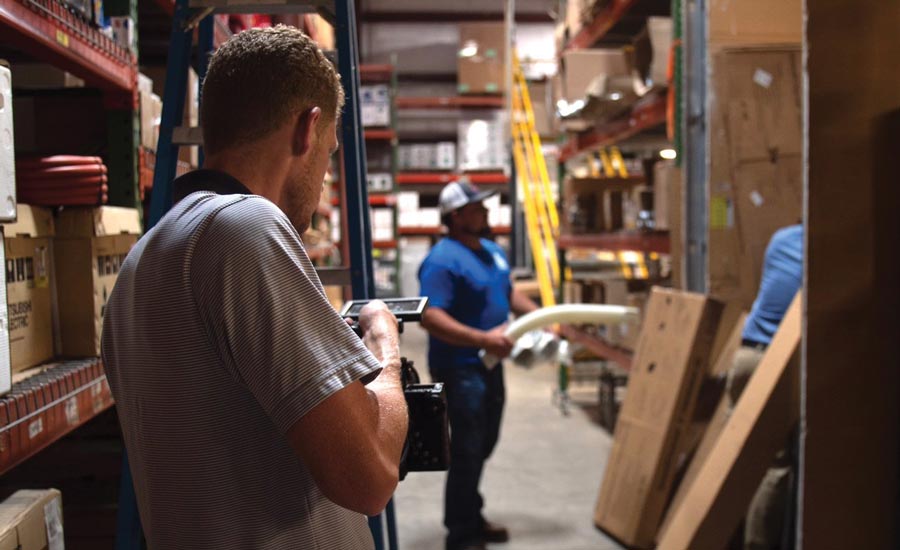Talk to any professional at any level of the HVAC industry — from the hands-on contractors to the dealers where they buy their supplies to the manufacturers of everything from commercial compressors to foil tape — and they will all voice the same concern about the industry: a lack of new talent entering the trade. It’s the same story in plumbing, painting, electrical, carpentry, and just about any skilled trade. Baby boomers are aging into retirement. Rather than exploring careers in the trades, Gen X and millennials chose college in significantly higher numbers than previous generations. According to the Pew Research Center, 40 percent of millennial workers aged 25 to 29 had a bachelor’s degree in 2016, compared to 32 percent of Gen Xers in 2000 and 26 percent of baby boomers in 1985.
Hope lies in Gen Z — today’s middle school and high school students who will soon be making decisions about their education and career paths. This is the future of the HVAC trade, and together, we share the responsibility of educating them on the opportunities available to them. Fortunately, many in the trades are stepping up to do just that.
Opportunities In The Trades
The first hurdle the industry has to tackle may be the hardest. HVAC and other skilled trades have a real perception problem. As the MikeRoweWORKS Foundation puts it, “Pop culture has glorified the ‘corner office job’ while unintentionally belittling the jobs that helped build the corner office.” Education cuts have led to the elimination of “shop” classes and vocational programs — or, worse yet, conventional wisdom considers them options only suited to low-performing or poorly behaved students.
One group working hard to combat such misconceptions is Ferguson Cares, the philanthropic arm of the $18.4 billion distribution company which is committed to building partnerships with transformational non-profit organizations, including those that focus on the skilled trades.
Ferguson’s initiatives vary from local grassroots efforts to national scholarship support to online education initiatives. Melissa Hazelwood, senior manager for Ferguson Cares, has called out some of their most successful programs, including a partnership with Virginia’s Isle of Wight County School District. Located near Ferguson’s Newport News, Virginia, headquarters, 46 percent of the district’s graduates don’t go on to a four-year college or university, making it an ideal candidate for a career and technology education (CTE) program that focused on immersive hands-on learning opportunities. By arranging the schedule so students alternated a full week of CTE with a full week of academic courses, students were able to carry out home renovation projects in the community for residents who were unable to afford them. In addition to funding the new program, Ferguson outfitted complete plumbing and HVAC labs for students.
For a broader reach, in March, Ferguson launched a website supporting its Skilled Trades Pay™ initiative. Phase one of the program is focused on awareness of what HVAC and other trades have to offer, with statistics on education costs, student debt, average salary, and advancement opportunities relative to a traditional university education. The site is currently being promoted through social media, YouTube ads, and other digital media to connect with the Gen Z target audience.
“In addition to students, the site is also a resource for parents, guidance counselors and teachers,” Hazelwood explained. “We want the story to be about options — not that trades are better than college or vice versa, just that individual students may be better suited for one or the other and they have a choice.”
Heating, Air-Conditioning and Refrigeration Distributors International (HARDI), a trade group representing more than 480 distributor members who serve installation and service/replacement contractors in residential and commercial markets, has taken a creative and unexpected route to their Workforce Recruitment Initiative: They’ve made a full-length film.
Hot Commodity is a documentary that follows a diverse group of HVAC professionals and tells the story of the varied paths they took to arrive in the industry.
HARDI Director of Sales and Marketing Chris DeBoer describes how the documentary came about.
“We felt that the problem we were facing was a lack of awareness of the opportunities in HVAC,” he said. “We just weren’t getting a fair shake as a career path — there’s this stigma of it being a dark, dirty job. We really needed to get the message to a younger audience about the job security, upward mobility, and salary open to them. And if you want them to pay attention, your educational content has to be entertaining.”
The first key to HARDI’s strategy was finding compelling “characters” — real people in the industry that students would find relatable. “It’s not all ‘in your face’ about HVAC jobs,” said DeBoer. “We tell their personal stories, look at their lives as a whole.”
The second key was making sure the hour-long film was available to a mass audience, not just the industry. To that end, HARDI has developed a marketing and distribution campaign, and Hot Commodity is slated to stream on Amazon Prime this summer.
Encouraging HVAC
What about those who have explored, considered, and may well be on the path to a career in HVAC? Various members of the industry are also doing their part to encourage and reward those students in hopes they will continue on the path and share their experience with others.
One of the most well-known is the Work Ethic Scholarship Program through the MikeRoweWORKS Foundation, which has given over $5 million in scholarships to help people get trained in skilled labor. Ferguson Cares donates to the scholarship fund and, in turn, is part of the award process. Not only do they find the shared purpose a worthwhile investment, but they also find that it resonates with their customers, who have known for years that the skilled trades are an honorable profession.
Through its Johnstone Solutions University, distributor Johnstone Supply has gone beyond offering piecemeal HVAC training as a value add to its customers. In 2017, they achieved national accreditation by PAHRA (Partnership for Air Conditioning, Heating, Refrigeration), an independent, third-party organization established to certify that training programs meet or exceed industry standards in the areas of residential a/c and heating, light commercial a/c and heating, and commercial refrigeration. In addition to online courses, Johnstone Solutions University offers live, hands-on training at three locations in Cincinnati, Dayton, and Indianapolis.
Shurtape Technologies LLC has also explored a variety of opportunities to support students in skilled trades through its Tape University initiative. Focused local programs have included a partnership with local businesses to help sponsor a special event with the Detroit Construction Academy, which included awarding one $2,500 Tape University scholarship in 2018 and two $2,500 Tape University scholarships in 2019.
Specific to the HVAC industry was Shurtape’s five-year Mission: HVAC program. From 2015 through 2019, Shurtape selected three students pursuing training for a career in the HVAC industry and challenged their practical knowledge and problem-solving skills with a series of 10 missions, which included anything from interviewing experienced HVAC professionals about their product selection processes and work habits to speculating on the skills that will be necessary for the future of the industry. Each mission was worth $500, and over the course of the program, Shurtape gave $75,000 in scholarships to support future HVAC professionals.
Since closing out the program, Shurtape has focused on Tape University, its online knowledge center for commercial and industrial tape solutions.
Working Together Beyond 2020
The unprecedented situation brought about by COVID-19 has only served to prove how essential the skilled trades really are. No matter the circumstances, we will always need to keep our homes comfortable, keep food supplies refrigerated, and maintain the climate and air quality in our hospital facilities and other essential facilities. HVAC professionals will continue to be in demand, and across the industry, we must all continue to work together to build the future of the trades. In the words of HARDI’s DeBoer, “There are so many programs out there. The more we can team up and share the same message, the more effective we will be.”







